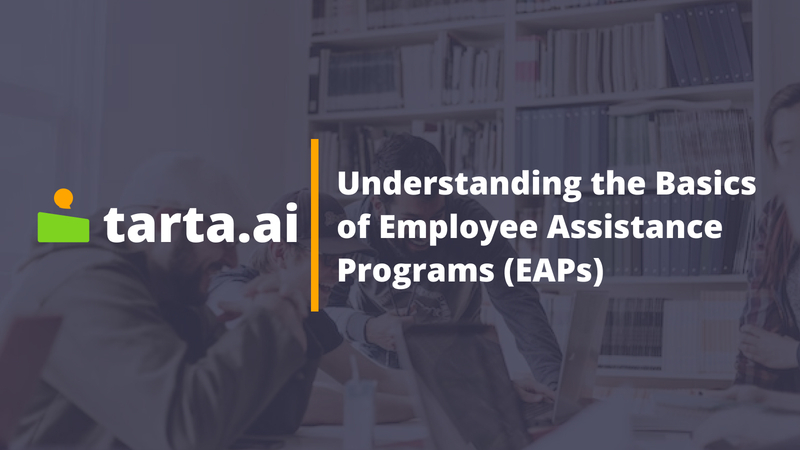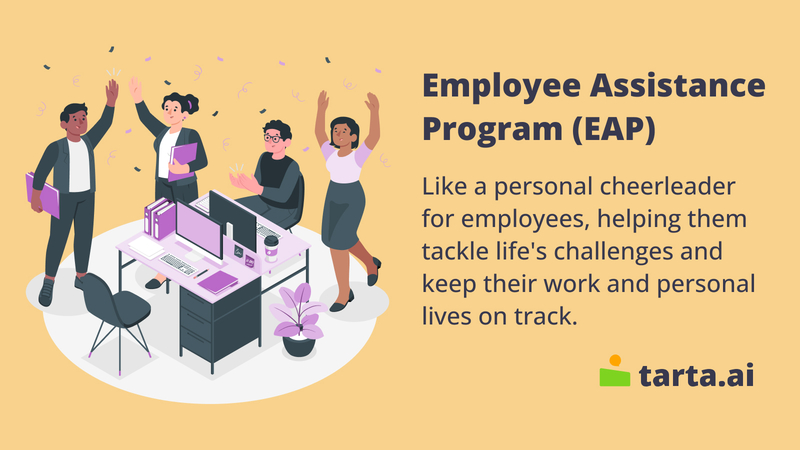Understanding the Basics of Employee Assistance Programs (EAPs)

Employee Assistance Programs (EAPs) are workplace-based programs that provide confidential counseling, referral, and other support services to employees who are dealing with personal or work-related problems that may affect their well-being, job performance, or workplace relationships. EAPs are designed to help employees address a wide range of issues, including mental health, substance abuse, stress, relationship problems, financial difficulties, and legal concerns.
EAPs play a crucial role in promoting employee well-being, reducing absenteeism and presenteeism, improving workplace productivity and morale, and enhancing employer-employee relations. By providing employees with access to professional and confidential support services, EAPs can help prevent and resolve workplace conflicts, reduce health care costs, and improve employee retention.
The purpose of this article is to provide an overview of the basics of EAPs, including what they are, why they are important, what services they offer, how they are implemented in the workplace, and how employers can benefit from them. This article aims to help employers and employees alike understand the value of EAPs in promoting a healthy and productive workplace.
What is an Employee Assistance Program (EAP)?
Employee Assistance Programs (EAPs) are workplace-based programs that provide a variety of confidential counseling, referral, and support services to employees and their family members. These programs aim to help employees resolve personal and work-related problems that may affect their job performance, productivity, or overall well-being.

There are different types of EAPs that employers can choose from, including in-house EAPs, external EAPs, and hybrid EAPs. In-house EAPs are typically run by the employer's human resources department or an outside vendor, while external EAPs are run by a third-party provider. Hybrid EAPs combine elements of both in-house and external EAPs.
The components of EAPs can vary depending on the employer's needs and the type of EAP that is implemented. However, most EAPs include the following core components:
- Confidential counseling: EAPs provide confidential counseling to employees who are dealing with personal or work-related issues that may affect their well-being or job performance. This counseling may be provided in person, over the phone, or through online platforms.
- Referral services: EAPs provide employees with referrals to community resources or professional service providers for issues that may require specialized treatment or assistance.
- Work-life services: EAPs offer a variety of services designed to help employees manage their personal and work-related responsibilities, such as childcare, eldercare, financial planning, and legal assistance.
- Health and wellness programs: EAPs may offer programs or resources to help employees improve their physical and mental health, such as smoking cessation programs, stress management classes, or mindfulness training.
- Crisis response: EAPs provide immediate support to employees and their families in the event of a crisis or traumatic incident, such as a natural disaster, workplace violence, or a death in the family.
Why are EAPs important?
EAPs offer several benefits for employees, including:
- Access to confidential support: EAPs provide employees with access to confidential counseling and support services, which can help them address personal or work-related problems without fear of judgment or retaliation.
- Improved well-being: EAPs can help employees manage stress, improve their mental and physical health, and enhance their overall well-being.
- Reduced absenteeism and presenteeism: EAPs can help employees address personal or work-related issues that may cause them to miss work or be less productive while at work.
- Enhanced job satisfaction: EAPs can help employees feel more supported and valued by their employer, which can improve their job satisfaction and overall morale.
Interesting fact:
For every $1 invested in an EAP, employers can see a return on investment of $3 to $10.
EAPs offer several benefits for employers, including:
- Improved productivity: EAPs can help reduce absenteeism and presenteeism, which can lead to improved productivity and performance in the workplace.
- Reduced healthcare costs: EAPs can help employees address health issues early on, which can prevent more serious and costly health problems from developing later on.
- Enhanced employer-employee relations: EAPs can help employers demonstrate their commitment to supporting their employees' well-being, which can improve employer-employee relations and reduce turnover rates.
- Improved workplace culture: EAPs can help create a positive workplace culture that values employee well-being and promotes a supportive and collaborative work environment.
EAPs can also help address the stigma surrounding mental health in the workplace by providing employees with access to confidential counseling and support services. By promoting a culture of openness and support, EAPs can help reduce the fear and shame associated with seeking help for mental health issues. This, in turn, can help improve employee well-being, reduce absenteeism and presenteeism, and enhance overall workplace productivity and morale.
What services do EAPs offer?
- Counseling services
One of the core services offered by EAPs is counseling. This can include short-term counseling for personal or work-related issues, such as stress, anxiety, depression, substance abuse, or relationship problems. Counseling may be provided by licensed mental health professionals, such as psychologists, social workers, or counselors, and can be offered in-person, over the phone, or through online platforms.
- Legal and financial services
EAPs may also offer legal and financial services to employees. Legal services may include assistance with legal issues such as family law, estate planning, or employment law. Financial services may include assistance with budgeting, debt management, or retirement planning.
- Referral services
EAPs often provide referral services to employees who need specialized treatment or assistance. Referral services may include access to community resources, such as mental health clinics, substance abuse treatment centers, or legal aid organizations. EAPs may also provide referrals to other employee benefits programs, such as employee assistance funds or disability programs.
- Health and wellness programs
EAPs may also offer a variety of health and wellness programs designed to help employees improve their physical and mental health. This may include programs such as smoking cessation, weight management, or stress reduction. EAPs may also offer resources and support for chronic health conditions, such as diabetes or heart disease.

Photo: Campaign Creators/Unsplash
Overall, EAPs provide a comprehensive range of services that aim to support employees' well-being and enhance their work performance. By providing access to confidential counseling, legal and financial services, referral services, and health and wellness programs, EAPs can help employees address personal or work-related issues that may affect their job performance, productivity, or overall well-being.
How are EAPs implemented in the workplace?
EAPs can be offered in different ways depending on the employer's needs and resources. Some employers may contract with an external EAP provider to offer services to their employees, while others may have an in-house EAP staffed by internal counselors or mental health professionals. EAPs may also be offered through employee benefits programs, such as health insurance plans or employee assistance funds.
Confidentiality is a crucial aspect of EAPs. Employees must feel comfortable seeking help and sharing personal information with EAP providers without fear of judgment or reprisal. EAPs are legally bound by confidentiality agreements, and information shared by employees is kept strictly confidential unless there is a threat to the employee's safety or the safety of others.
Interesting fact:
EAPs are most commonly used by employees for stress (49%), relationships (21%), and anxiety (17%).
Employee participation in EAPs is voluntary, and employers cannot force employees to participate in EAP services. However, employers can encourage participation by promoting the availability and benefits of EAPs and by offering incentives or rewards for participation. EAPs can also be integrated into the workplace culture and policies, such as by providing training for supervisors on how to recognize and address employees' personal or work-related issues.
Implementing EAPs in the workplace requires a commitment from employers to prioritize employee well-being and support. By offering confidential and comprehensive services and promoting employee participation, EAPs can help create a supportive and productive work environment that benefits both employees and employers.
Employee Assistance Programs (EAPs) are a valuable resource for employees and employers alike. By providing access to confidential counseling, legal and financial services, referral services, and health and wellness programs, EAPs can help employees address personal or work-related issues that may affect their job performance, productivity, or overall well-being. EAPs can also benefit employers by improving employee morale, reducing absenteeism and turnover rates, and enhancing workplace productivity.
Employers who prioritize their employees' well-being by offering EAPs can create a supportive and productive work environment that benefits both employees and employers. By investing in their employees' mental and physical health, employers can demonstrate their commitment to their workforce and foster a positive workplace culture.
In today's fast-paced and often stressful work environments, employees may face a variety of personal or work-related challenges that can affect their job performance and overall well-being. By offering EAPs, employers can provide their employees with the support and resources they need to overcome these challenges and thrive both in and outside of work. As such, employers should consider implementing EAPs as part of their overall employee benefits program to promote a healthy and productive workplace culture.
- Employee Assistance Programs (EAPs) are employer-sponsored programs that provide confidential and comprehensive services to employees to help them address personal or work-related challenges that may affect their job performance, productivity, or overall well-being.
- EAPs can include counseling services, legal and financial services, referral services, and health and wellness programs.
- EAPs are important for both employees and employers. For employees, EAPs can help them address personal or work-related issues and improve their mental and physical health. For employers, EAPs can improve employee morale, reduce absenteeism and turnover rates, and enhance workplace productivity.
- EAPs can be implemented in different ways, including contracting with an external EAP provider, having an in-house EAP staffed by internal counselors or mental health professionals, or integrating EAP services into employee benefits programs.
- Confidentiality is crucial in EAPs to ensure employees feel comfortable seeking help and sharing personal information with EAP providers without fear of judgment or reprisal.
- Employee participation in EAPs is voluntary, and employers cannot force employees to participate in EAP services. However, employers can encourage participation by promoting the availability and benefits of EAPs and by offering incentives or rewards for participation.
- Employers should consider implementing EAPs as part of their overall employee benefits program to promote a healthy and productive workplace culture. By investing in their employees' mental and physical health, employers can demonstrate their commitment to their workforce and foster a positive workplace culture.
FAQ
What is an EAP?
An EAP is an employer-sponsored program that provides confidential and comprehensive services to employees to help them address personal or work-related challenges that may affect their job performance, productivity, or overall well-being.
What types of services do EAPs offer?
EAPs can include counseling services, legal and financial services, referral services, and health and wellness programs.
Are EAP services confidential?
Yes, EAP services are confidential. EAP providers are bound by strict confidentiality agreements and are not allowed to share information about employees' use of EAP services with anyone, including their employer.
Why are EAPs important for employers?
EAPs can improve employee morale, reduce absenteeism and turnover rates, and enhance workplace productivity. By investing in their employees' mental and physical health, employers can demonstrate their commitment to their workforce and foster a positive workplace culture.